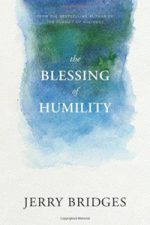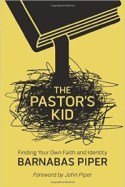Barnabas Piper's Blog, page 93
May 30, 2016
New Happy Rant: Perpetual Potty Training, Doggy Daddies, and Hipster Homemade Tracts
In this episode of the Happy Rant Ted Kluck, Ronnie Martin, and Barnabas Piper bring you a particularly delightful episode for this long weekend. They rant about the following.
Why do we celebrate everything our kids do? First grade “graduation”, finishing dinner – everything gets a “Good job, buddy!”
Dogs are not children. There, it is said. And that means your dog is not your child.
What’s the deal with tract evangelism? Is it still around? Might it make a comeback with the retro-loving hipster crowd?
This week we have two sponsors. The first is Missional Wear, that fantastic partner of ours that offers the best of reformed apparel, artwork, pub glasses, and mugs. In case you forgot Father’s day is not far away, and they have some fantastic posters, prints, and wall hangings that pops or the pastor would love for his office. Aaaaaaaand Missional Wear is offering a special for our podcast listeners. Use the code HappyRant at checkout and get $10 of a purchase of $50 or more through June 5. That is one week so move quickly!
Our second, but not lesser, sponsor is NavPress. The particularly want to highlight two books by Jerry Bridges, The Blessing of Humility and his recently re-released classic The Pursuit of Holiness. Both books are rich with theology and gentleness, both reflective of their author. Pick them up, work through them slowly, digest, and benefit.
Like every week, we want to offer a big thank you to Resonate Recordings, the fine folks who make us sound
listenable. If you are looking for great people to help your church put out recorded sermon audio or help you with a podcast they’re your people.
Feel free to hit us up on Twitter at @HappyRantPod or on Facebook or via email at HappyRantPodcast@Gmail.com with any topic suggestions or feedback. We love hearing from listeners!
To listen you can:
Subscribe in iTunes.
Listen on Stitcher.
Leave us a rating in iTunes (it only takes 1 click and it really helps us).
Listen using the player below.
Episode #89
May 27, 2016
A Pharisee in Tax Collector’s Clothing
Two men went up to the temple to pray, one a Pharisee and the other a tax collector. The Pharisee prayed boldly “God, I thank you I am not like that man” while the tax collector knelt in a corner, beat his chest, and prayed “Lord, have mercy on me a sinner.” One of these men went home right in the eyes of God, and we all know which one. And we all despise the other.
In a weird, ironic, but quite predictable plot twist by pursuing the position of tax collector we have become the Pharisee.
We. All of us.
That’s right you, reformed guy. And you progressive lady. And you republican baby boomer and you libertarian millennial. And you homeschool family and you public school family and you house church planter and you mega church pastor. All of us.
We have learned to revel in our weakness, to lead with our flaws. We call it “authenticity” – we are real in what we reveal. We aren’t hypocrites; hypocrisy is the new unforgiveable sin. We are the tax collector, or at least we play one on TV. We are so elated in our role as tax collector we, well, we can’t help but be a bit smug that we’re not like that person. That judgmental jerk on Twitter. That fundamentalist crank. That whoever-is-on-the-other-side-of-my-ideological-fence.
By becoming the tax collector we have become the Pharisee. In pursuing the position of authenticity we have puffed ourselves up. In distancing ourselves from those with whom we differ we have revealed our true selves.
In fact, we have far more in common with those we disdain than we dare admit. We may play the part of tax collector, but in reality we actually are the tax collector – morally decrepit, broken beyond repair, in need, sinners. And so is the one we are so glad not be like. We have only posed as tax collectors, pretended to be humble.
Which posture do we find ourselves taking – “I am so glad I am not like _____” or “Have mercy on me, a sinner.” We cannot do both. If we take former stance we are incapable of admitting or recognizing both our sin and our similarities to those we despise. If we take the latter stance we are incapable of thinking ourselves better than another. We can still disagree, vehemently even, but we can never think ourselves superior because of our position. The two postures are diametrically opposed.
It is so easy to play the role of tax collector because we know we ought, only to find ourselves being a Pharisee. We define “Pharisee” by traditional church legalism not realizing that we have justified ourselves, claimed righteousness, a thousand times over by extra-biblical standards. And that is legalism.
The long and short of it is that we are prideful people. It expresses itself in self-justification, in judgment of others, in smugness at the presumed rightness of our positions, and in a million other ways. And it always comes back to this: Which prayer do you pray – “I am so glad I am not like _____” or “Have mercy on me, a sinner.” One is the prayer of the Pharisee in tax collector’s clothing and the other is the prayer someone who will go away right in the eyes of God.
May 24, 2016
Lord, Make Me Viral
Lord, make me viral.
Not like a cold or the mumps, but like kittens and Dude Perfect.
I know you said your word will not return empty,
But these are my words, and they just might be void and empty.
Lord, make me viral,
Because despite public opinion publishing isn’t all that lucrative.
I know fame is fleeting and often harmful,
But I’m pretty sure I’m the exception to the rule.
Lord, make me viral,
I can do a spoken word video or invent some Hebrew words.
My launch team is mostly strangers I bribed with free stuff,
But did you see how big it is? (That’s a lot of Amazon reviews!)
Lord, make me viral,
I don’t really care why I’m famous I just want to be famous.
If enough people know me my life will be fulfilled,
Or at least my bank account will be because of obscenely priced video courses.
Lord, make me viral.
I really, really need a platform.
So what if it’s built on the fragile base of petrified standards
And a dried up conscience.
Lord, make me viral.
You know better than anyone that “numbers= real people.”
So please give me the numbers.
I promise, despite all evidence to the contrary, it’s not about me.
Amen
May 23, 2016
New Happy Rant: Mr. Manners Answers Your Questions
In this episode of the Happy Rant Ted Kluck, Ronnie Martin, and Barnabas Piper take on some of the toughest etiquette questions you listeners had to offer. These are just some of the topics they sort out on your behalf.
Proper physical affection
Texting and social media while with others
Texting vs. calling
Eye contact while conversing
This week we are sponsored Moody Publishers, specifically the book Distant God: Why He Feels Far Away…And What We Can Do About It by Chris Nye, pastor of Willamette Christian Church in Portland, OR. Distant God explores why it is that we often feel like God is far away, not listening, not accessible. And then it digs into who exactly is far away – you or God? And what can we do when we fell far from God? Is it just wait and see or can we take actions to draw near to Him so that He will draw near to us?
Like every week, we want to offer a big thank you to Resonate Recordings, the fine folks who make us sound
listenable. If you are looking for great people to help your church put out recorded sermon audio or help you with a podcast they’re your people.
Feel free to hit us up on Twitter at @HappyRantPod or on Facebook or via email at HappyRantPodcast@Gmail.com with any topic suggestions or feedback. We love hearing from listeners!
To listen you can:
Subscribe in iTunes.
Listen on Stitcher.
Leave us a rating in iTunes (it only takes 1 click and it really helps us).
Listen using the player below.
Episode #88
May 20, 2016
Life’s Not Fair, So Win and Lose Well
Recently, as we were flipping through radio stations in the car, my daughter heard the song “We Are the Champions” by Queen. She asked what a champion is, and we started talking about winning and losing. At one point in the conversation she said, “Winning isn’t fair because not everyone can do it.” Her response is, sadly, quite common.
Sometime over the past few decades a mindset of “fair” has developed, calling for everyone to finish in the exact same place and receive the exact same reward. Fair has become equity in the finish instead of equity in the process. This perspective says a reward is due just for showing up, not because it’s earned. It cheapens real rewards for actual successes, and as it creeps into different areas of life, it undermines valuable assets such as hard work or giftedness.
Naturally, accompanying this mindset is the idea that “everyone is a winner.” This is especially prevalent in teaching, coaching, and parenting younger children. I understand why this attitude prevails. Nobody wants a child to feel like a loser. Nobody wants a child to feel shame and sense that she is less significant because of a failure or because she was outdone. But saying “we’re all winners” doesn’t help much when the child eventually loses, and not keeping track of the score at peewee soccer or T-ball games can’t fend off reality forever. Everyone loses sometime.
One of my primary responsibilities as a parent is to prepare my children for all of life, not just what I want their life to hold. Of course, I never want my children to fail, but they will fail. I do not want them to experience disappointment, but it is unavoidable. They will not always be winners and will thus be forced to deal with the struggles of losing. If all I have taught them is that they are winners, what have I really prepared them for besides delusions of ease and grandeur?
Winning and losing are a part of life. And so are the accompanying rewards and struggles. Sadly, the contests are often not fair, making those struggles even more poignant. What am I to do as a parent? I cannot stick my head in the sand and my daughters’ along with it.
Winning and losing are real, so I must model being a humble and gracious winner and loser, no matter whether the circumstances are fair or not. My children need a definition of “fair” that motivates them to work hard and develop the gifts God has given them, not one that teaches them to expect praise and prizes at every turn. Most importantly, I must show them and teach them what it means to find value not in victory but in being a reflection of the Creator.
This column originally appeared at WORLD News Group’s website ( wng.org ). Reprinted with permission. Copyright © 2012 WORLD News Group. All rights reserved.
May 17, 2016
6 Books You Should Read This Summer
Summer is almost here. College students are in the midst of finals or are wrapping up. Parents of school-aged children are suppressing panic at the thought of three months with the little hooligans at home. But summer also means vacation for many people, and vacation means more time to read. So here are six books for you to consider as a summer read. All are excellent.
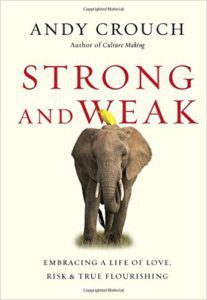 Strong and Weak: Embracing a Life of Love, Risk, and True Flourishing
Strong and Weak: Embracing a Life of Love, Risk, and True Flourishing
by Andy Crouch
“Paradigm” is a WAY over-used word in describing books, but in this book Crouch genuinely presented a new and better paradigm that helped me think about all my interactions with others and with God. If that sounds overwhelming, keep in mind he did it in about 180 pages. That’s why I say he created a paradigm. It is a way of viewing and understanding interactions – parenting, marriage, work, leadership, ministry, neighborly, political, etc. I won’t give away or try to explain his framework for fear of cheapening it. Just buy and read this book. It is one the will genuinely reshape your thinking and, with a little effort, your living too.
The Outlaws of Time: The Legend of Sam Miracle

by N.D. Wilson
I was introduced to Wilson’s writing through his non-fiction works (Notes From the Tilt-a-Whirl and Death by Living), but sometimes the way an author writes non-fiction screams “story-teller.” So I read his Ashtown Burials Trilogy which was excellent and enthralling and fun and all things stories should be. Well, Outlaws of Time was better. I loved it. Wilson’s imagination is unparalleled as exhibited by his weaving together of worlds and times and settings. His villains are heinous without being gratuitous or grotesque. His heroes are flawed without the flaws being over-played. His stories display honor, courage, friendship, honesty, perseverance, failure, redemption, and all the other things the best fiction does. He is not bound by genre, so Outlaws is a thriller/mystery/historical novel. In short it is fun and draws readers in. You will love it.
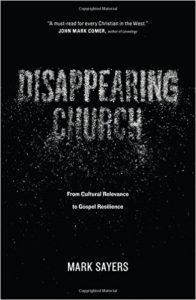 Disappearing Church: From Cultural Relevance to Gospel Resilience
Disappearing Church: From Cultural Relevance to Gospel Resilience
by Mark Sayers
The church has always been at it’s best when it is the desperate, creative minority, so why are we trying so hard to be the relevant cultural majority (especially since the Bible says people will be offended by the gospel)? Sayers poses this question then unpacks with a combination of theology, missiology, sociology, and cultural history that he is an expert at weaving together in an eminently readable way. Readers can tell that Sayers reads with incredible breadth and depth, not because he shows it off in an obnoxious intellectual way, but because he synthesizes an incredible about of knowledge into cogent, applicable points. He challenges readers with his ideas but not his verbiage. This book is one that any Christian who wants to engage their neighbor or pastor who wants to lead their church should read. It’s fantastic.
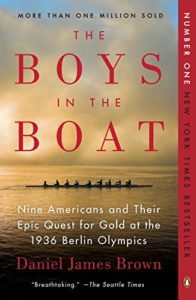 The Boys in the Boat: Nine Americans and Their Epic Quest for Gold at the 1936 Berlin Olympics
The Boys in the Boat: Nine Americans and Their Epic Quest for Gold at the 1936 Berlin Olympics
by Daniel James Brown
If you loved Laura Hillenbrand’s Unbreakable there’s a good chance you’ll like this because it has much of the same wonderful story telling, but with an athletic twist. It’s the story of one University’s rowing team coming together to try to win the national championship and hopefully compete in the olympics, the olympics overseen by Himmler, Goering, and Hitler. The personal accounts of key rowers are compelling. Brown even makes the sport of rowing interesting and that’s a feat since most readers (like me) know little about it and care even less. It’s a masterful narrative that inspires and pulls the reader along even faster than the crewmen could row.
 Dispatches
Dispatches
by Michael Herr
If you are a history buff, especially if you are a Vietnam war buff (or rather one who loves to study the Vietnam War) you must read Dispatches. Herr was a columnist for a couple different U.S.A. publications during Vietnam, and this is a collection of his long form articles put together in a book. It is laced with profanity, dark, gloomy, and brilliantly depicts the feel of the war for both the men on the front and the people covering it. He writes with the cynicism of the era and magnificent prose. A second layer of the books brilliance is that it gives readers a sense of how writers wrote and journalists covered stories in a unique era. It isn;t just information about a contentious period in U.S. history – it’s a cross section of lives.
 Under Our Skin: Getting Real About Race – And Getting Free From the Fears and Frustrations that Divide Us
Under Our Skin: Getting Real About Race – And Getting Free From the Fears and Frustrations that Divide Us by Ben Watson
During the events in Ferguson, Missouri Ben Watson, a tight end for the New Orleans Saints (now for the Baltimore Ravens) penned a poignant and pointed Facebook post with his thoughts on race, racial tensions, and the complexity therein. This book was born from that post. Watson is a faithful believer in Christ and writes from that perspective, with a clear understanding that Christ is the hope all races need and the balm for the wounds America has inflicted on itself. But he does not shy away form the complexities of racial conflict. He writes things white people, the majority culture, need to read and understand so we can better understand the perspective, pain, and lives of our minority brothers and sisters. But he does not pile on “white guilt.” He also addresses his own minority, African American culture and points out things that need to change. Watson writes fairly and with punch, but not with bombast or hyperbole. If you are trying to get your head and heart around issues of race in America Under Our Skin is a fantastic place to start.
May 13, 2016
Pastor’s Kids, If I Knew Then What I Know Now . . .
People’s opinions are only that—opinions. They shouldn’t dictate what I do or don’t do, especially when it comes to my lifestyle. I still struggle with this as a grown man with my own family. Once upon a time it was what kind of music I listened to or what words I used. Now it’s more like how I spend my money or raise my kids.
I’ve only been able to get comfortable looking directly to the Bible for a standard within the last few years, realizing there are lots of things church people freak out about that God doesn’t. If I had found peace living up to God’s standards instead of people’s standards, I would have been a whole lot happier and avoided a mess of trouble I got myself into.
I’d dig into God’s Word with the purpose of knowing God better.
The Bible is a great story, not just a Sunday school curriculum. And it’s alive! I was so used to hearing about and being surrounded by Scripture that I missed its wonder. It took a major breakdown before I could come back to the Bible and see that it’s so much more than lessons, theology, and morals. It’s a narrative of God’s redeeming power and love. It’s a revelation of His character and work, and the Holy Spirit speaks into the fiber of our hearts if we’re willing. The Bible was a burden before I realized this; now it’s life!
I’d dream big and not feel guilty about it.
It’s ok to do something “secular” with your life. Secular is a distinction that church people made up to protect the sanctity of the church. What it really did was create a hierarchy between “Christian” work and “unchristian” work.
What matters is whether you are able to do what you do in a way that honors God. Do you have a mind for business? Go to Wall Street. Are you an artist? Paint a picture of something beautiful (and it doesn’t have to be Jesus). Love journalism? Get that gig with the New York Times or The Atlantic.
God gave you gifts and passions so you could maximize them and He would get the glory from you, his beautiful created child.
I’d bask in God’s undivided attention and affection for me.
God likes you. I’m sure you’ve been told that God loves you, but do you realizes that He likes you? I didn’t. In my world, the theology was so big and heady that I was often amazed by God and in wonder of Him, but not close to Him.
You may have come from a background where God was talked about mostly as a judge, so you fear Him or fear displeasing Him. But God really likes you. He enjoys you as a child.
I have two little girls, and they’re much more than my responsibility. I don’t just provide for them and keep them in line. I enjoy them. They make me really happy. And I want them to know it. And God feels like that toward His children, except to infinity and with perfection.
I wouldn’t even think of giving up on the church.
No matter how much it hurt you, church is worth sticking with. Maybe it’s not the church you grew up in, but finding one where you can be honest with your struggles and hurt is worth it. Finding one that will embrace you is worth it.
Just make sure it’s a church that puts Jesus first and not you or anyone else. You can’t afford to leave the church. You need it and it needs you. Your soul was made to be part of a community of souls, not solo. Stand by the church. The Bible call’s it Jesus’ Bride, and I have a suspicion He cares an awful lot about her. So should we.
For more on serving pastors’ kids well and the challenges they face check out my book The Pastor’s Kid: Finding Your Own Faith and Identity. If this blog is all the reading you can handle you can get the audio book with I read instead. I’m no Morgan Freeman, but it’s not too bad.
May 12, 2016
New Happy Rant: Calling Wives Hot, Accountability, and Sarcasm vs. Snark
In this episode of the Happy Rant Ted Kluck and Barnabas Piper rant about the following while Ronnie posts beach photos from a well-earned vacation.
Why don’t men realize how awkward it is when they publicly declare their wives to be HOT?
How is accountability supposed to work? Is it a weekly meeting? Is it mutual flagellation? Might there be a better way?
What is the difference between sarcasm, snark, and satire and what is the place for each?
Like every week, we want to offer a big thank you to Resonate Recordings, the fine folks who make us sound
listenable. If you are looking for great people to help your church put out recorded sermon audio or help you with a podcast they’re your people.
Feel free to hit us up on Twitter at @HappyRantPod or on Facebook or via email at HappyRantPodcast@Gmail.com with any topic suggestions or feedback. We love hearing from listeners!
To listen you can:
Subscribe in iTunes.
Listen on Stitcher.
Leave us a rating in iTunes (it only takes 1 click and it really helps us).
Listen using the player below.
Episode #86
April 28, 2016
What If We Picked a President By Reality TV Competition?
My friend Lizette recently posted this to Facebook.
My first reaction was to laugh out loud. My second was to ask myself why stop there? Why only those reality TV competitions? Let’s see what might happen if we selected a president using other Reality TV competitions.
Hunger Games
Fictional, but gripping, this competition would at least give us a clear winner by indisputable victory. Not terribly promising on the foreign relations front. Or tax reform. Or sanctity of life. On the plus side the decks are cleared of holdover candidates for future elections.
Survivor
This would work especially well for the GOP since there are about 14 possible contestants (give or take). Unlike the actual GOP they’d have to form alliances, though. Then again they’d get to backstab and lie. Seems quite promising, and it would be gratifying to seem them voted off the island.
Fear Factor
The problem is that Trump would like lying in a pit of snakes. Rumor has it he sleeps in one every night. And I’m not sure Hillary has emotions, so it would be more like “Trying-to-find-the-right-face-for-the-camera Factor.” And Bernie would lose – just hold up a rifle with the word “capitalism” etched on the stock.
Dancing With the Stars
I’m not sure “backpedaling” is a dance step, but if it was we’d see it a lot in this competition. At least Bruno Tonioli is obnoxious enough to shout down the Donald.
Naked and Afraid
We’re already afraid. Let’s skip the naked. But if we could leave candidates inn the jungle it might be a decent trade-off.
Hell’s Kitchen
Gordon Ramsay is already the Donald Trump of the kitchen. Come to think of it this might be a bit much. But I bet Kasich makes a mean veal parmesan.
Amazing Race
Teamwork, physical exertion, working well with foreign nationals – Seems like all the skills presidents need and ones that none of the candidates have. Hillary might have to vary from the pantsuit, though.
Biggest Loser
The only loser if we went this route is the American people, though it would be fun to see Jillian Michaels scream at Ted Cruz.
American Idol (Original Judges)
Can you imagine how Simon Cowell would respond to Bernie Sanders’ voice? And you know Hillary would pick a Cher song for her audition.
Wife Swap
The only one excited about this idea is Bill Clinton.
Too soon?
Man vs. Wild
I bet Trump would actually like eating raw yak liver in his underwear in sub-zero temps. It seems right up his alley.
April 25, 2016
New Happy Rant: Politically Correct Stupidity, The Danger of Platform, and a LIVE Rant
In this episode of the Happy Rant Ted, Ronnie, and Barnabas rant about the following:
What in the world is wrong with people? The college students in this video are incapable of declaring obvious truths for the fear of offending people. Of course, we might be afraid of offending them by airing our true opinions too.
What are we supposed to do with big-platform ministries that seem, pretty obviously, to be ruining pastors? Is the platform sinful? Is it just a good ol’ boys club? What should our response be?
Big announcement, or rather, big tease – we are planning to have a LIVE HAPPY RANT in October in Louisville. We discuss some details and more are to come.
Like every week, we want to offer a big thank you to Resonate Recordings, the fine folks who make us sound
listenable. If you are looking for great people to help your church put out recorded sermon audio or help you with a podcast they’re your people.
Feel free to hit us up on Twitter at @HappyRantPod or on Facebook or via email at HappyRantPodcast@Gmail.com with any topic suggestions or feedback. We love hearing from listeners!
To listen you can:
Subscribe in iTunes.
Listen on Stitcher.
Leave us a rating in iTunes (it only takes 1 click and it really helps us).
Listen using the player below.
Episode #84


